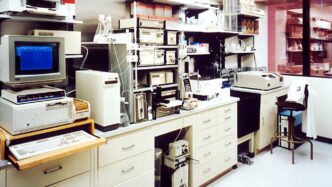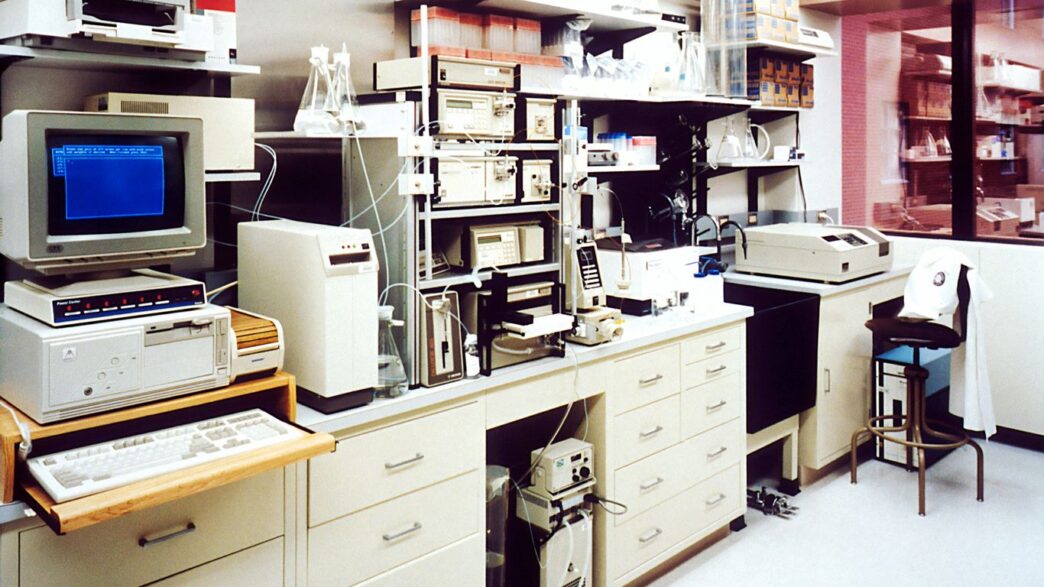So, you’re thinking about becoming a biotech software engineer? That’s pretty cool. It’s a field where you can mix tech skills with science to help make real breakthroughs. Whether it’s finding new medicines or understanding genetic code, this job is all about using computers to solve big biological puzzles. It’s not just about coding; you’ll need to get a handle on some science too. Let’s break down what it takes to be successful in this growing area.
Key Takeaways
- To be a successful biotech software engineer, get a solid grasp of basic science and how to handle data. Knowing common bioinformatics tools helps too.
- Good soft skills matter a lot. Being able to think through problems, talk clearly with others, and pay close attention to details will make you stand out.
- Real-world experience is super important. Look for internships, try to get some hands-on lab time, and get involved in research projects to build your resume.
- When looking for a job, make your resume clear about what you can do. Prepare for interviews by knowing your stuff and researching the company. Use online tools to find openings.
- Keep learning about new tech like AI in biotech and gene editing. Understanding how the industry works, from startups to big companies, and acting ethically are also key.
Foundational Skills for Biotech Software Engineers
To really make it as a biotech software engineer, you need a solid mix of scientific know-how and technical chops. It’s not just about writing code; it’s about understanding what that code is doing in a biological context. Think of it like learning a new language – you need to know the grammar (coding) and the vocabulary (biology) to have a real conversation.
Core Scientific Understanding
This is where you get your hands dirty, metaphorically speaking. You don’t need to be a lab scientist, but you do need to grasp the basics of what’s happening in the petri dish or the bioreactor. This means understanding common lab techniques like PCR, cell culturing, or protein purification. Knowing how these processes work helps you design software that can actually manage and analyze the data they produce. For instance, if you’re building software for a gene sequencing company, understanding how DNA is amplified and read will help you create more efficient data pipelines. It’s about speaking the same language as the biologists you’ll be working with.
Data Analysis and Interpretation
Biotech is swimming in data. From genomic sequences to clinical trial results, the sheer volume can be overwhelming. Your job as a software engineer is to help make sense of it all. This involves not just collecting and storing data, but also developing tools for statistical analysis and visualization. You’ll need to understand experimental controls and how to draw valid conclusions from the results. Imagine creating software that can spot trends in patient data to predict disease outbreaks – that requires a solid grasp of both data science and the underlying biological questions.
Bioinformatics Tool Proficiency
While you might not be a dedicated bioinformatician, having a working knowledge of common bioinformatics tools is a big plus. This includes familiarity with databases like NCBI or PDB, and tools for sequence alignment, such as BLAST. Being able to use data visualization software to present findings clearly is also important. Think about it: if a researcher needs to compare thousands of protein sequences, knowing how to use the right software to do that quickly and accurately makes your contribution much more impactful. It’s about being able to use the specialized instruments of the biological data world.
Cultivating Essential Soft Skills

Technical skills get you in the door, but it’s the soft skills that really make you shine in biotech. Think of it like this: you can know all the lab techniques in the world, but if you can’t explain your results or work with others, your impact will be limited. These aren’t just buzzwords; they’re the glue that holds projects together and drives innovation.
Critical Thinking and Problem-Solving
Biotech is all about figuring things out. You’ll run into experiments that don’t work, data that doesn’t make sense, or unexpected roadblocks. Being able to stop, look at the situation, and figure out what went wrong or what to try next is super important. It’s not just about knowing the science; it’s about applying it logically when things get tricky. You need to be able to break down a complex problem into smaller, manageable parts and then come up with practical solutions. This often involves looking at data from different angles and not being afraid to question assumptions.
Effective Communication and Collaboration
Nobody works alone in biotech. You’ll be part of teams with people from different backgrounds – biologists, chemists, engineers, even business folks. Being able to clearly explain your work, whether it’s in a written report, a presentation, or just a quick chat, is key. You also need to be a good listener and be able to understand what others are saying, especially when they’re explaining something technical. Being able to translate complex scientific ideas into language that non-experts can understand is a superpower. This skill is vital for getting buy-in for your projects and ensuring everyone on the team is on the same page.
Adaptability and Attention to Detail
This field moves fast. New technologies pop up, research directions change, and sometimes experiments just don’t pan out the way you expected. You need to be able to roll with these changes and learn new things quickly. That means being open to different approaches and not getting too attached to one way of doing things. At the same time, precision matters a lot. A small mistake in pipetting or data entry can lead to wasted time, resources, and incorrect conclusions. So, while you need to be flexible, you also need to be meticulous in your work. It’s a balance, for sure.
Gaining Practical Experience
So, you’ve got the science down, you’re starting to get a feel for the tools, but how do you actually do biotech work? It’s not all in your head or on a screen. You need to get your hands dirty, so to speak. This is where practical experience really shines.
Internships and Co-op Programs
Think of internships as your trial run in the real world of biotech. These aren’t just resume fillers; they’re your chance to see how things actually work in a company or a research lab. You’ll get to apply what you’ve learned in classes, try out different techniques, and maybe even discover what you don’t want to do, which is just as important. Many students find that a good internship can lead directly to a job offer after graduation. It’s a way to build connections and show potential employers what you can do before they commit to hiring you full-time.
Hands-On Laboratory Techniques
This is the bread and butter for many biotech roles. You can read about PCR or cell culture all day, but actually doing it is a different story. Getting comfortable with common lab procedures is key. This includes things like:
- Molecular Biology: Techniques such as PCR (polymerase chain reaction), gel electrophoresis, and DNA cloning.
- Cell Culture: Growing and maintaining cells in a lab setting, which is vital for many types of research and drug development.
- Protein Analysis: Methods like Western blotting or chromatography to study proteins.
- Microscopy: Using microscopes to visualize cells, tissues, or other biological samples.
The more you practice these, the more confident and capable you’ll become.
Contributing to Research Projects
Beyond formal internships, look for opportunities to get involved in research projects. This could be through your university, volunteering at a local lab, or even joining a citizen science initiative. Participating in research teaches you how to approach scientific questions, design experiments, analyze data, and work through challenges. You’ll learn to troubleshoot when experiments don’t go as planned, which is a big part of scientific work. Even contributing to a small part of a larger project can give you valuable insights and something concrete to talk about in interviews.
Navigating the Biotech Job Market
So, you’ve got the skills, you’ve done the lab work, and now it’s time to actually land that biotech job. It can feel a bit overwhelming, right? Like trying to find a specific protein in a massive cell culture. But with a bit of strategy, you can definitely make it happen.
Crafting a Compelling Resume
Your resume is your first handshake, so make it count. Don’t just list what you did; show the impact. Instead of saying "Worked on PCR," try "Developed a PCR protocol that improved amplification efficiency by 20%." Quantifying your achievements makes a huge difference. Also, make sure to have a clear section for your technical skills – think specific lab techniques, software you’re good with, and any equipment you’ve operated. And definitely tailor it for each job. A generic resume just won’t cut it in this field.
Strategic Interview Preparation
Interviews in biotech often have two parts: the technical and the behavioral. For the technical side, be ready to talk about your past projects, experimental design, and how you troubleshoot. Brush up on the core science relevant to the role. For behavioral questions, think about using the STAR method (Situation, Task, Action, Result) to explain how you handle challenges, work with others, or learn from mistakes. It’s also super important to research the company beforehand. Know their mission, what they’re working on, and try to get a feel for their culture. This shows you’re genuinely interested and not just sending out applications blindly. You can find out a lot about companies and their work by following technology journalism.
Leveraging Online Platforms and Networking
Don’t underestimate the power of online tools and connections. LinkedIn is your best friend here. Make sure your profile is up-to-date and reflects your resume. Connect with people in the industry, follow companies you’re interested in, and join relevant groups. Many recruiters actively search on LinkedIn for candidates. Beyond that, check out industry-specific job boards like BioSpace or even your university’s career portal. Sometimes, the best opportunities come from people you know, so don’t be shy about reaching out to former colleagues or professors. Building these relationships can open doors you didn’t even know existed.
Understanding the Biotech Landscape
Biotech is a huge field, and knowing how it all fits together is pretty important if you want to work in it. It’s not just about labs and pipettes; there’s a whole ecosystem of companies, research, and even ethical questions to consider. Think of it like understanding the different neighborhoods in a city before you move there – you want to know what kind of vibe you’re getting into.
Startup Versus Large Organization Dynamics
When you’re looking at biotech jobs, you’ll see a big difference between working at a tiny startup and a massive, established company. Startups are often where the really new, cutting-edge stuff happens. Things move fast, and you might find yourself doing a bit of everything, from coding a new analysis tool to helping with experimental design. It can be high-pressure, but the payoff, both in terms of learning and potentially equity, can be big. You’re often closer to the core mission and can see your direct impact.
Large organizations, on the other hand, tend to have more defined roles and structured career paths. They usually have more resources, which means access to specialized equipment, extensive training programs, and often better benefits. The pace might be a bit slower, and your role might be more focused on a specific area, but there’s a stability and depth of specialization that can be really appealing. It’s like choosing between a speedboat and a cruise ship – both get you somewhere, but the journey is quite different.
Here’s a quick look at some general differences:
| Feature | Biotech Startup | Large Biotech/Pharma Organization |
|---|---|---|
| Pace | Fast, often chaotic | More structured, predictable |
| Role Scope | Broad, often wearing many hats | Specialized, defined responsibilities |
| Resources | Limited, often bootstrapped | Extensive, well-funded |
| Risk/Reward | High risk, high potential reward | Lower risk, more stable reward |
| Innovation Focus | Disruptive, cutting-edge | Incremental improvements, established tech |
The Role of Data in Biotechnology
Data is basically the lifeblood of modern biotech. Seriously, almost everything relies on collecting, analyzing, and interpreting data. Whether it’s genomic sequences, clinical trial results, or manufacturing process metrics, software engineers are key to making sense of it all. You’ll be building the tools and pipelines that allow scientists to find patterns, make discoveries, and develop new treatments. Think about drug discovery – AI models are sifting through millions of compounds to find potential candidates, and that’s all data-driven. Or personalized medicine, where patient data is used to tailor treatments. Your ability to handle, process, and visualize this data will be super important.
Key areas where data is transforming biotech:
- Drug Discovery and Development: Analyzing vast datasets to identify potential drug targets and predict compound efficacy.
- Genomics and Proteomics: Processing and interpreting complex biological sequence data to understand disease mechanisms and develop gene therapies.
- Clinical Trials: Managing and analyzing patient data to assess treatment safety and effectiveness.
- Manufacturing and Quality Control: Using data to optimize production processes and ensure product consistency.
Ethical Conduct in Biotech
This is a big one. Biotech deals with life itself, so ethical considerations are always present. As a software engineer, you might not be directly designing experiments, but the tools you build can have significant impacts. For example, if you’re working on AI for diagnostics, how do you ensure fairness across different patient populations? If you’re involved in gene editing software, what are the implications for future generations? Companies need to be transparent about their data usage, and there are regulations to follow. Being aware of these issues and building responsible software is part of the job. It’s about making sure the technology we create is used for good and doesn’t create unintended harm.
Future Trends Shaping Biotech Careers
The biotech world isn’t standing still, not by a long shot. New tech and discoveries pop up constantly, and if you want to stick around and actually make a difference, you’ve got to keep up. Knowing where things are headed helps you pick the right skills and find those future jobs.
Artificial Intelligence and Machine Learning in Biotech
AI and ML are really changing how we find new drugs, figure out personalized treatments, and just generally crunch biological data. These tools can speed up how fast we analyze information, guess if a drug will work, spot signs of disease, and even help design experiments better. Think about it: AI can look through millions of chemical compounds to find potential drug candidates way faster than people can. This means jobs in computational biology, AI/ML engineering for drug discovery, and data science focused on biotech are really growing.
Advancements in Gene Editing Technologies
Tools like CRISPR have totally changed genetic engineering, letting us edit DNA with amazing accuracy. This is huge for treating genetic diseases, creating new therapies, and even improving crops. The demand for people who can work on gene therapy, do genomic research, and make sure gene editing is used responsibly is only going to go up.
Continuous Learning and Professional Development
Because biotech moves so fast, you can’t just learn something once and be done. You need to keep up with new tech, research, and rules. This means attending webinars, taking online classes, reading journals, or getting certifications. It’s not just about knowing the science; it’s about being ready to learn new things all the time. People who can blend biology knowledge with computer skills and data smarts, and who are always learning, will do the best in this field.
Wrapping It Up
So, you’ve learned a lot about becoming a biotech software engineer. It’s a field that really needs people who can bridge the gap between complex science and smart technology. Remember to keep learning because things change fast. Build connections with others in the industry, and don’t be afraid to try new things, like internships. Your journey here is about more than just a job; it’s about contributing to real solutions that can help people and the planet. Keep that curiosity alive, and you’ll do great things.
Frequently Asked Questions
What’s the first step to getting a job in biotech?
Start by learning the basics of science, like biology and chemistry. Look into different parts of biotech to find what you like best, maybe making new medicines or working with computers and data.
Do I really need a PhD to do well in biotech?
Not always! A PhD can help you get research jobs, but having a Master’s or even a Bachelor’s degree can get you good jobs in labs, making sure products are good, or selling things. What you can actually do is often more important than your degree level.
Besides science stuff, what other skills are super important?
You need to be good at thinking and solving problems. Paying close attention to details is also key. Being able to talk and write clearly helps you work with others and share your discoveries. Also, be ready to learn new things because biotech changes fast.
How can I get real experience before I finish school?
Internships are fantastic! Try to find chances to work in university labs, biotech companies, or research places. Helping out with projects or taking classes that involve a lot of lab work can also give you great experience.
Is meeting people in the industry really that important for biotech jobs?
Yes, definitely! Meeting people can lead you to mentors, jobs, and people to work with on projects. Go to industry events, join science clubs, and use websites like LinkedIn. Often, the best jobs come from people you already know.
Are there many jobs in biotech, and is the field growing?
Yes, the job market in biotech is strong and expected to grow a lot. Areas like personal medicine, fixing genes, and making eco-friendly products are getting bigger, which means more job openings in many different areas.














